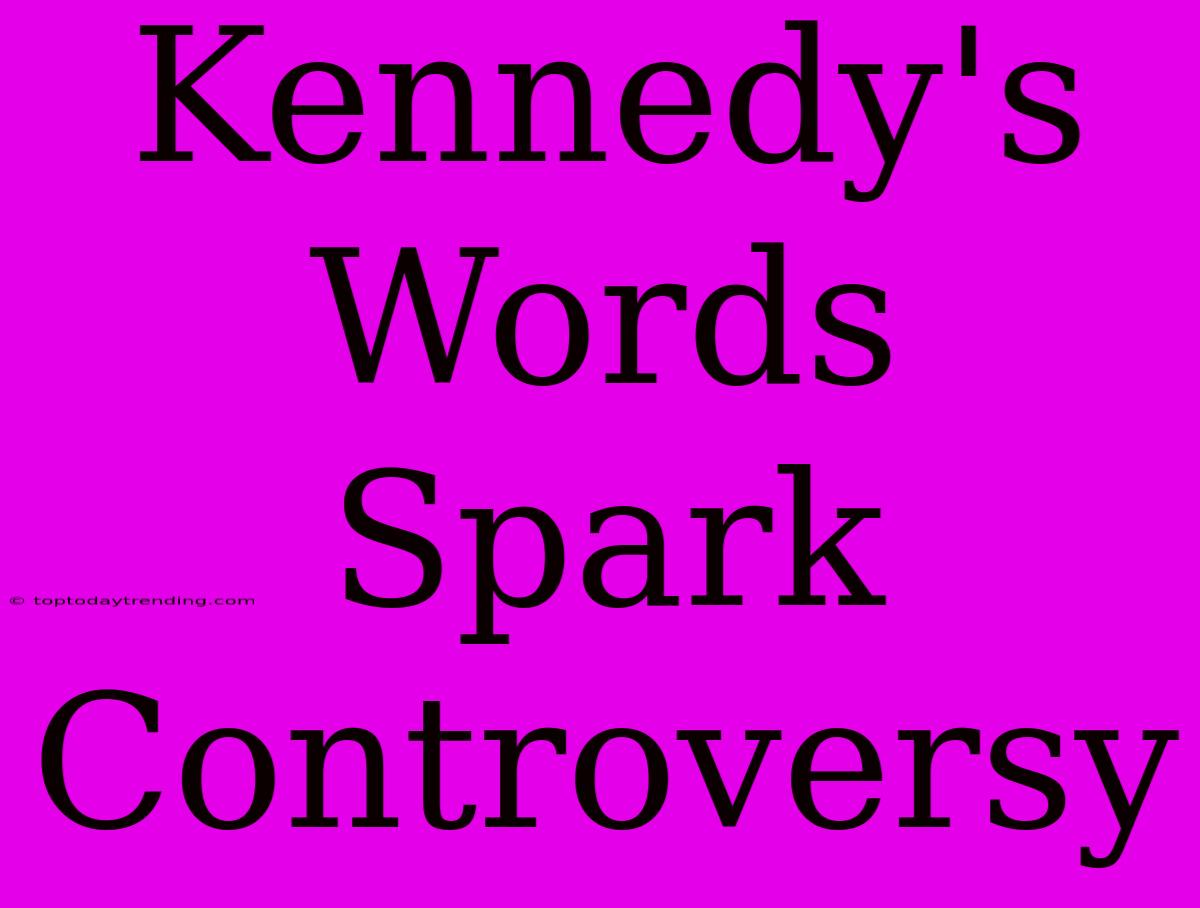Kennedy's Words Spark Controversy: A Legacy of Rhetoric and Resistance
John F. Kennedy's presidency was marked by his eloquent speeches and powerful pronouncements, often capturing the spirit of the nation and inspiring generations. Yet, these very words, lauded for their soaring rhetoric, also sparked heated controversy, exposing the complexities of his legacy and the enduring power of language in shaping historical narratives.
"Ask not what your country can do for you..."
Perhaps Kennedy's most famous line, delivered in his 1961 inaugural address, encapsulated his vision of a nation united by shared purpose. "Ask not what your country can do for you—ask what you can do for your country," he declared, urging Americans to embrace civic duty and national service. This call to action resonated deeply, resonating with a generation eager to overcome Cold War anxieties and embrace a brighter future.
However, critics argued that this statement overlooked the role of government in providing for its citizens, especially those facing economic hardship or social injustice. Some perceived it as a call to blind patriotism, neglecting the need for social welfare programs and equitable opportunities.
"Ich bin ein Berliner!"
In 1963, amidst the Cold War, Kennedy's visit to West Berlin became a defining moment in the struggle for freedom. Addressing a massive crowd in the shadow of the Berlin Wall, he declared, "Ich bin ein Berliner!" This simple phrase, uttered in broken German, resonated with the city's residents, expressing solidarity with their fight against communist oppression.
However, the linguistic nuances of the phrase sparked debate. While it accurately conveyed the meaning "I am a Berliner," some argued that the literal translation, "I am a jelly doughnut," diminished the speech's intended gravitas. This minor linguistic quibble overshadowed the speech's broader message, sparking controversy over its effectiveness and the impact of language on perception.
"We choose to go to the moon..."
Kennedy's ambitious vision for space exploration was encapsulated in his 1962 speech, "We choose to go to the moon." This bold statement, a rallying cry for scientific progress, ignited the nation's imagination and paved the way for the Apollo program, culminating in the first moon landing in 1969.
Yet, the speech faced criticism, with some arguing that the resources allocated to space exploration were better spent addressing social problems on Earth. The Vietnam War, escalating during this period, further fueled this debate, raising questions about the morality of prioritizing space exploration over human suffering.
A Legacy of Words
Kennedy's speeches remain powerful testaments to his charisma and visionary leadership. His words inspired a generation to believe in a brighter future, fueled the civil rights movement, and spurred scientific advancements. However, their impact extended beyond inspiring hope. They also sparked controversy, revealing the complexities of historical events and the enduring power of language in shaping perceptions and narratives.
As we reflect on Kennedy's legacy, it's important to remember the power of his words, both their unifying potential and their capacity to provoke dissent. These controversies, far from detracting from his impact, underscore the importance of continued dialogue and critical engagement with his words, ensuring that his legacy remains a source of inspiration and debate.

